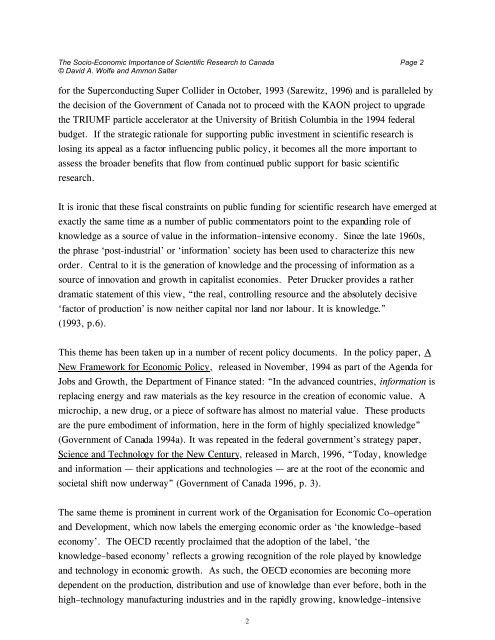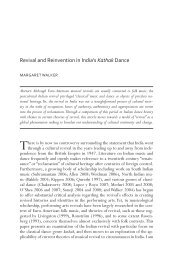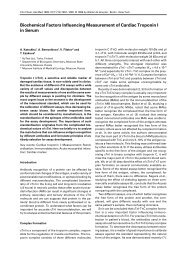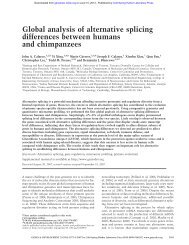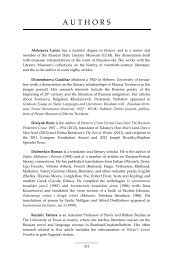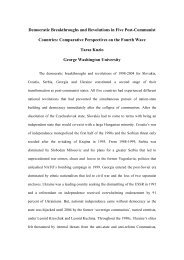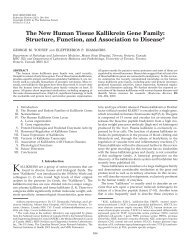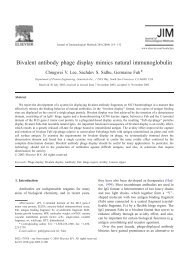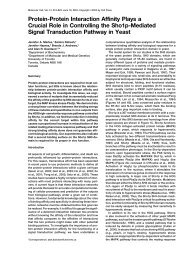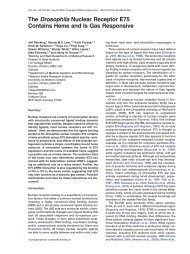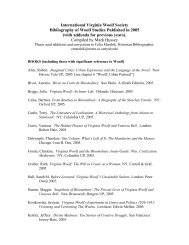The Socio-Economic Importance of Scientific Research To Canada
The Socio-Economic Importance of Scientific Research To Canada
The Socio-Economic Importance of Scientific Research To Canada
You also want an ePaper? Increase the reach of your titles
YUMPU automatically turns print PDFs into web optimized ePapers that Google loves.
<strong>The</strong> <strong>Socio</strong>-<strong>Economic</strong> <strong>Importance</strong> <strong>of</strong> <strong>Scientific</strong> <strong>Research</strong> to <strong>Canada</strong> Page 2© David A. Wolfe and Ammon Salterfor the Superconducting Super Collider in October, 1993 (Sarewitz, 1996) and is paralleled bythe decision <strong>of</strong> the Government <strong>of</strong> <strong>Canada</strong> not to proceed with the KAON project to upgradethe TRIUMF particle accelerator at the University <strong>of</strong> British Columbia in the 1994 federalbudget. If the strategic rationale for supporting public investment in scientific research islosing its appeal as a factor influencing public policy, it becomes all the more important toassess the broader benefits that flow from continued public support for basic scientificresearch.It is ironic that these fiscal constraints on public funding for scientific research have emerged atexactly the same time as a number <strong>of</strong> public commentators point to the expanding role <strong>of</strong>knowledge as a source <strong>of</strong> value in the information–intensive economy. Since the late 1960s,the phrase ‘post-industrial’ or ‘information’ society has been used to characterize this neworder. Central to it is the generation <strong>of</strong> knowledge and the processing <strong>of</strong> information as asource <strong>of</strong> innovation and growth in capitalist economies. Peter Drucker provides a ratherdramatic statement <strong>of</strong> this view, “the real, controlling resource and the absolutely decisive‘factor <strong>of</strong> production’ is now neither capital nor land nor labour. It is knowledge.”(1993, p.6).This theme has been taken up in a number <strong>of</strong> recent policy documents. In the policy paper, ANew Framework for <strong>Economic</strong> Policy, released in November, 1994 as part <strong>of</strong> the Agenda forJobs and Growth, the Department <strong>of</strong> Finance stated: “In the advanced countries, information isreplacing energy and raw materials as the key resource in the creation <strong>of</strong> economic value. Amicrochip, a new drug, or a piece <strong>of</strong> s<strong>of</strong>tware has almost no material value. <strong>The</strong>se productsare the pure embodiment <strong>of</strong> information, here in the form <strong>of</strong> highly specialized knowledge”(Government <strong>of</strong> <strong>Canada</strong> 1994a). It was repeated in the federal government’s strategy paper,Science and Technology for the New Century, released in March, 1996, “<strong>To</strong>day, knowledgeand information — their applications and technologies — are at the root <strong>of</strong> the economic andsocietal shift now underway” (Government <strong>of</strong> <strong>Canada</strong> 1996, p. 3).<strong>The</strong> same theme is prominent in current work <strong>of</strong> the Organisation for <strong>Economic</strong> Co–operationand Development, which now labels the emerging economic order as ‘the knowledge–basedeconomy’. <strong>The</strong> OECD recently proclaimed that the adoption <strong>of</strong> the label, ‘theknowledge–based economy’ reflects a growing recognition <strong>of</strong> the role played by knowledgeand technology in economic growth. As such, the OECD economies are becoming moredependent on the production, distribution and use <strong>of</strong> knowledge than ever before, both in thehigh–technology manufacturing industries and in the rapidly growing, knowledge–intensive2


